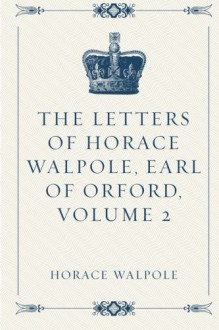This historic book may have numerous typos and missing text. Purchasers can download a free scanned copy of the original book (without typos) from the publisher. Not indexed. Not illustrated. 1861 Excerpt: ...i. p. Ixvii.)--Cunningham. 1 Vide Gray's Ode on a distant prospect of Eton...
show more
This historic book may have numerous typos and missing text. Purchasers can download a free scanned copy of the original book (without typos) from the publisher. Not indexed. Not illustrated. 1861 Excerpt: ...i. p. Ixvii.)--Cunningham. 1 Vide Gray's Ode on a distant prospect of Eton College.---wai-polk. 3 Hon. Scwallis Shirley. See vol. ii. p. Now I will divert your private grief by talking to you of what is called the public. The King and Princess are grown as fond as if they had never been of different parties, or rather as people who always had been of different. She discountenances all opposition, and he all ambition. Prince George, who, with his two eldest brothers, is to be lodged at St. James's, is speedily to be created Prince of Wales. Ayscough, his tutor, is to be removed with her entire inclination as well as with everybody's approbation. They talk of a Regency to be established (in case of a minority) by authority of Parliament, even this session, with the Princess at the head of it. She and Dr. Lee, the only one she consults of the late cabal, very sensibly burned the late Prince's papers the moment he was dead. Lord Egmont, by seven o'clock the next morning, summoned (not very decently) the faction to his house: all was whisper! at last he hinted something of taking the Princess and her children under their protection, and something of the necessity of harmony. No answer was made to the former proposal. Somebody said, it was very likely indeed they should agree now, when the Prince could never bring it about; and so everybody went away to take care of himself. The imposthumation is supposed to have proceeded, not from his fall last year, but from a blow with a tennis-ball some years ago. The grief for the dead brother is affectedly great; the aversion to the living one as affectedly displayed. They cried about an elegy,1 and added, "Oh, that it were but his brother!" On 'Change they said, "Oh, that it were but the butcher!'" 1 T...
show less

